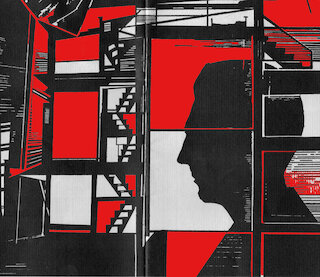Erwin Piscator und die Volksbühnen
17. Dezember 1893
Erwin Piscator wird in Ulm geboren.
1913
Er ist als Volontär am Münchner Hof- und Nationaltheater tätig und studiert Germanistik, Kunstgeschichte und Philosophie an der Universität.
1915
Er erlebt den Krieg als Soldat an der Westfront.
1917
Als Regisseur und Schauspieler kommt Piscator zum Fronttheater im belgischen Kortrijk (Courtrai).
1918/19
Umzug nach Berlin und Beteiligung an der DADA-Bewegung.
Er tritt in den Spartakusbund ein, der in der KPD aufgeht.
Herbst 1919
Erwin Piscator gründet und leitet mit Oscar Lucian Spaun das Theater „Das Tribunal“ in Königsberg. Dort heiraten Piscator und die Schauspielerin Hildegard Jurczyk (1900-1970).
1920
Mit Hermann Schüller, dem kommunistischen Jugendführer, gründet Erwin Piscator das „Proletarische Theater“ in Berlin, das in verschiedenen Sälen in den Arbeitergegenden spielt und führt bei den Stücken Regie.
1922
Erwin Piscator und der Dramatiker Hans José Rehfisch übernehmen das Central-Theater in der Alten Jakobstraße in Berlin, haben jedoch finanziell keinen Erfolg.
1924-1927
Tätigkeit an der Volksbühne (Theater am Bülowplatz):
Er inszeniert zehn Stücke für die Volksbühne, ein Großteil davon sind Uraufführungen, die er unter Verwendung damals neuester Techniken entwickelt.
1924
Erste Inszenierung für die Volksbühne im Theater am Bülowplatz: „Fahnen“ von Alfons Paquet.
1927
„Volksbühnenkrach“:
Zwischen Erwin Piscator und der Volksbühne kommt es nach der Uraufführung von Ehm Welks „Gewitter über Gottland“ zum Bruch. Dem Vorstand ist die Inszenierung politisch zu tendenziös und unternimmt ohne Absprache mit Piscator Eingriffe in die Inszenierung.
1927-1931
Die Piscator-Bühnen:
Vermittelt durch die Schauspielerin Tilla Durieux erhält Erwin Piscator vom Brauereidirektor Ludwig Katzenellenbogen die finanzielle Grundausstattung zur Eröffnung eines eigenen Theaters.
1928
Finanzieller Zusammenbruch der ersten Piscator-Bühne.
1929
Eröffnung der zweiten Piscator-Bühne im Theater am Nollendorfplatz mit der Uraufführung von Walter Mehrings „Der Kaufmann von Berlin“. Wenige Wochen später bricht auch dieses Unternehmen zusammen.
1930/31
Erwin Piscator und seine Frau Hildegard trennen sich.
1932
Erwin Piscator reist in die Sowjetunion. Dort dreht er den Film „Aufstand der Fischer“ nach einem Roman von Anna Seghers.
1933
Die Nazis beginnen kurz nach der Machtübernahme mit der Gleichschaltung der Institutionen.
Im Mai erklärt Dr. Siegfried Nestriepke seinen Rücktritt als Geschäftsführer der Volksbühne e.V. und als Verwaltungsdirektor des Theaters.
25. April 1937
Erwin Piscator und die ehemalige Tänzerin Maria Ley (1898-1999) heiraten in Neuilly.
1938
Piscator emigriert nach Amerika.
1939
Die von den Nazis betriebene Zerschlagung der Volksbühne e.V. führt zum Ziel: Im März löst sich der Verein Volksbühne e.V. auf, das Vermögen fällt an das Deutsche Reich.
Erwin Piscator gründet an der New School for Social Research in New York den Dramatic Workshop, in dem in angehende Theaterleute umfassend in allen Belangen des Theaters ausgebildet werden sollen.
1947
Getrennte Neugründung der Volksbühnenvereine in Berlin Ost und West.
1951
Vor dem Hintergrund der antikommunistischen Untersuchungen durch den McCarthy-Ausschuss kehrt Erwin Piscator nach Deutschland zurück.
Um 1960
Korrespondenz zwischen Piscator und Dr. Siegfried Nestriepke bezüglich der Intendanz des Theaters der Freien Volksbühne (Theater am Kurfürstendamm.
1961
Erste (Gast-)Inszenierung Piscators für die Freie Volksbühne Berlin.
1962
Auf der Gesellschafterversammlung der FVB-Theaterbetriebs GmbH am 10. Februar wird Erwin Piscator zum Intendanten gewählt und bleibt dies bis zu seinem Tod.
Erwin Piscator thematisiert während seiner Intendanz durch seine Stückdeutung (im Falle der „Atriden-Tetralogie“) bzw. durch seine Stückauswahl („Der Stellvertreter“, „Die Ermittlung“, „Der Aufstand der Offiziere“) die gesellschaftlich noch vielerorts verdrängte jüngste deutsche Vergangenheit sowie die Bedrohung durch die atomare Aufrüstung („In der Sache J. Robert Oppenheimer“).
1963
Am 30. April wird das neue Theater der Freien Volksbühne Berlin in der Schaperstraße feierlich eröffnet.
Einen Tag später findet die Eröffnungspremiere mit Romain Rollands „Robespierre“ statt.
1966
Erwin Piscator stirbt am 30. März und wird am 6. April 1966 auf dem Waldfriedhof in Berlin-Zehlendorf beerdigt.

